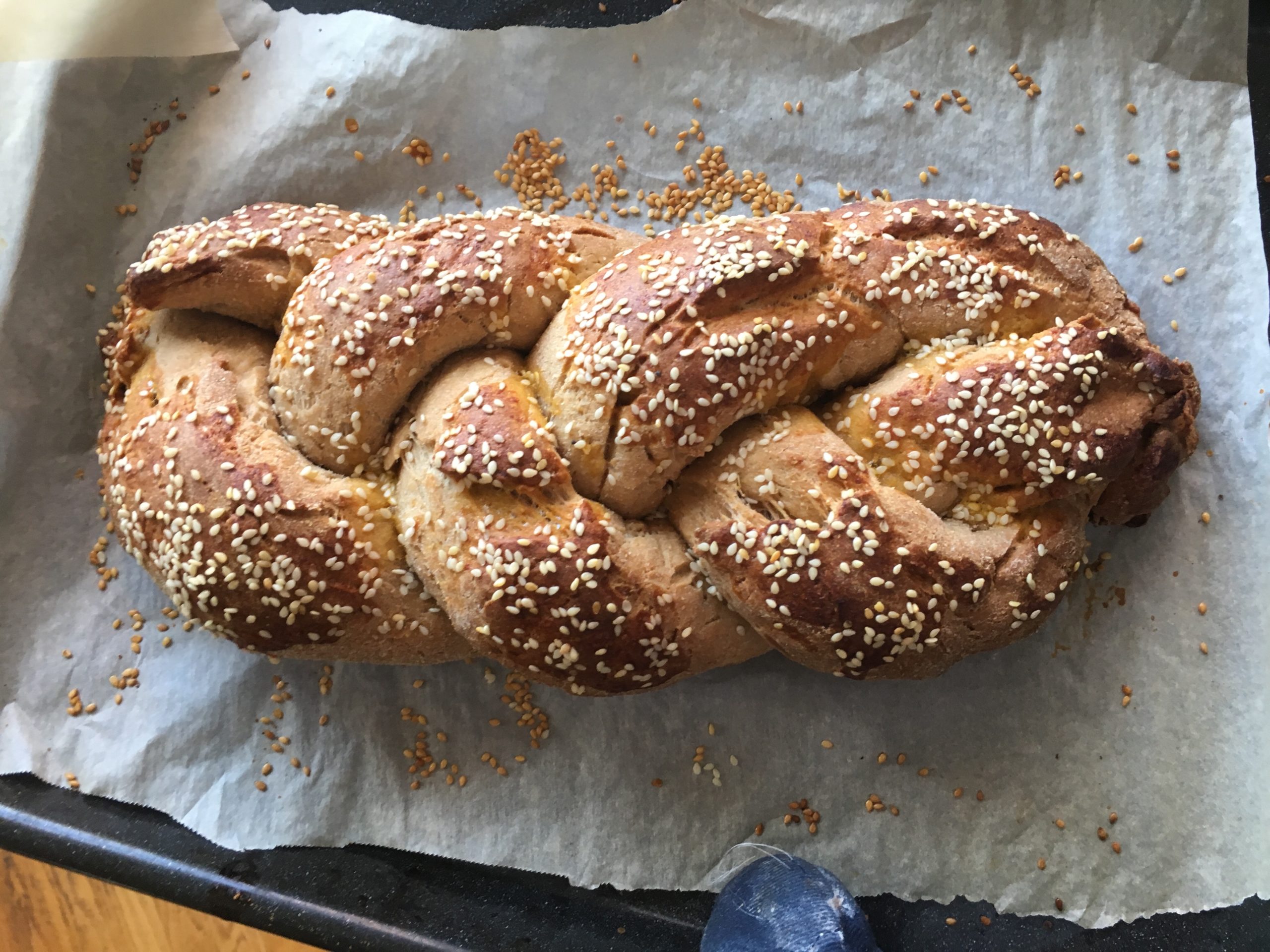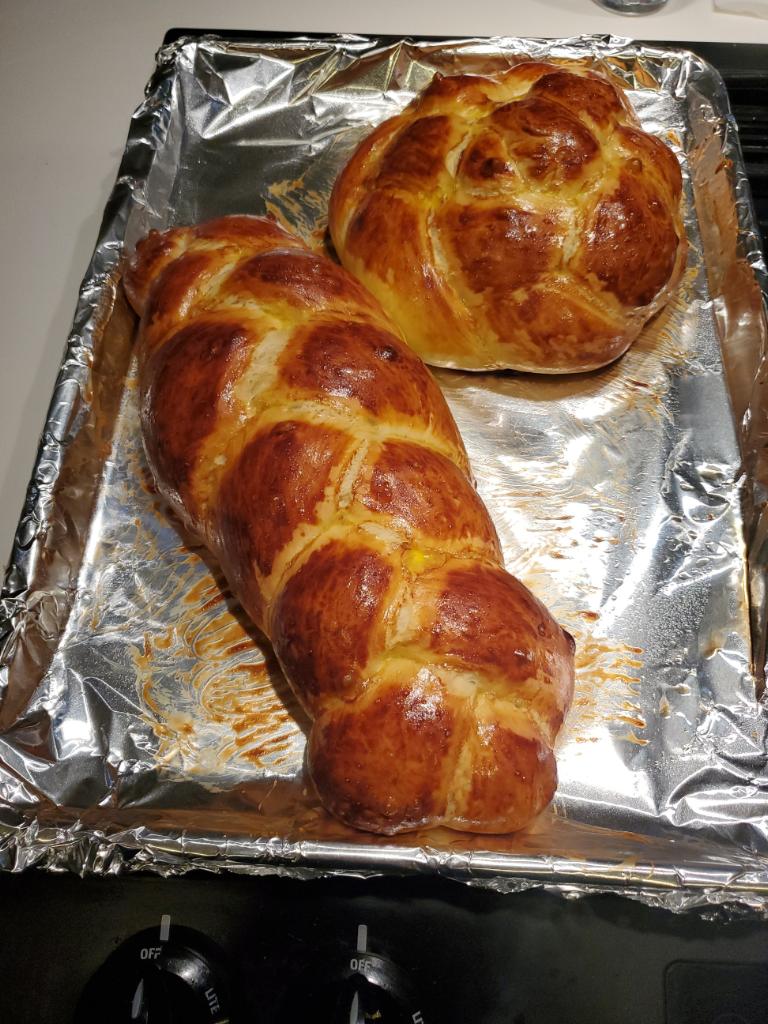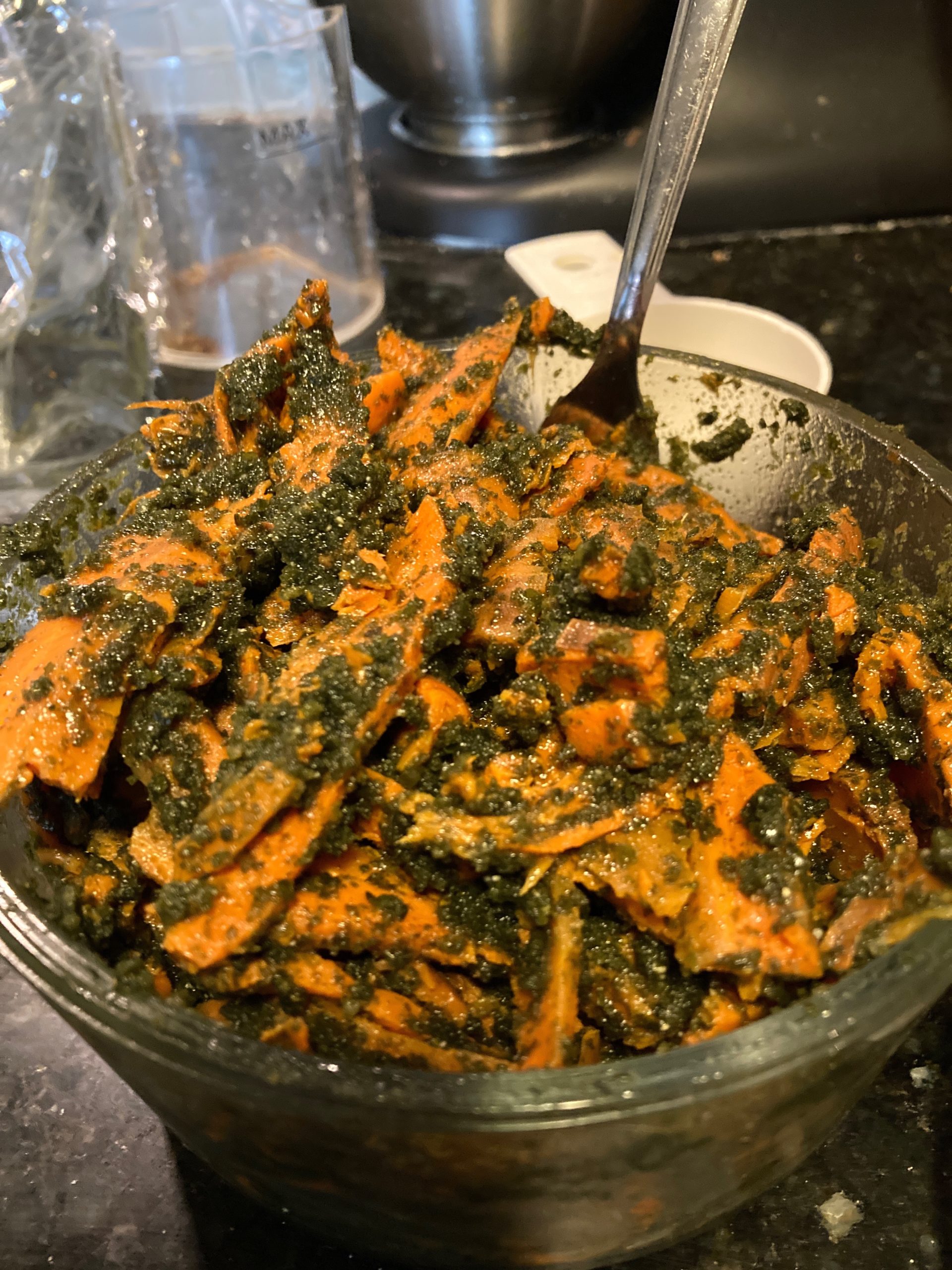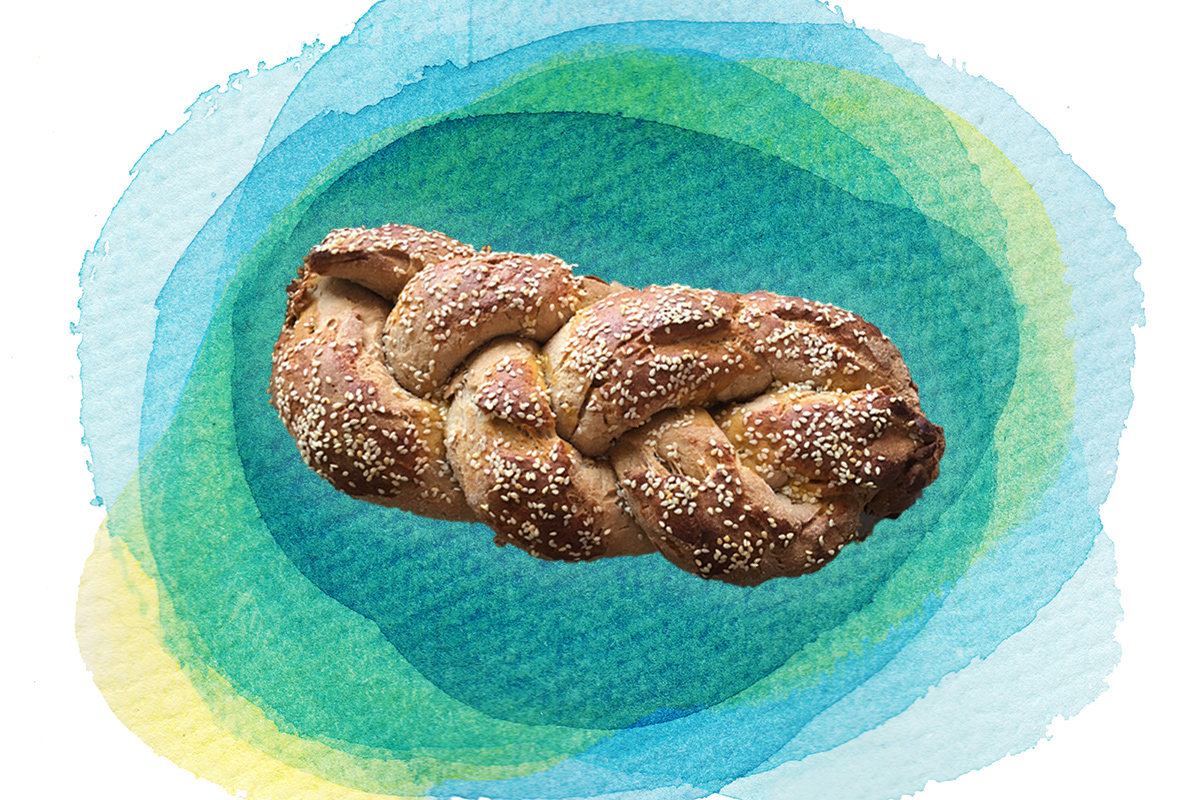Like most everyone circa late March 2020 in New York City, I took up cooking to stave off the dread. Between periodic phone calls with faraway relatives and the occasional doomscroll, I practically lived in my kitchen. I could probably mark time in marinades and resting periods for slow-rising breads.
At some point, the habit no longer seemed to fill the hole. I found myself missing my parents, who kept asking me if I had thought about coming back to stay with them in Toronto. Our family isn’t all that close, but they now felt especially far away. It didn’t help that my brothers lived on opposite coasts, or that the family hadn’t come together for a holiday in almost a decade. With Passover coming up in April, I longed especially for something to tether me to memories of home.
That’s when a memory resurfaced of my dad and I making challah together. We probably baked it once a month or so. The recipe had come from one of our old wizened cookbooks; even though I couldn’t braid my own hair, I could braid this. Without fail, the challah always puffed up like a frieze of cherubic cheeks, the egg-washed crust dotted with sesame seeds and beaming its signature golden yellow hue.
And so, in the throes of an extremely adult bout of homesickness, I decided I would make it again. Only I’d been vegan since 2016, so it would have to be an eggless version. I felt confident enough in my vegan cooking abilities to attempt something like this — how hard could it be? So I braided. I waited. I punched the dough down like I’d been taught. I imagined those perfect doughy caps rising in the oven. I’d show off the loaf to my parents over Zoom. Everything would be okay.
At the appointed hour, my oven timer beeped. The bread was ready.
And it tasted like sweet garbage.

Evidently something had gone wrong. Was it that I had subbed a little all-purpose flour out for whole wheat? Or that the egg was too important to the original recipe to be replaced? Whatever the reason, the dense trunk of bread that emerged from the oven was not the stuff of my childhood.
Meanwhile, my brother in San Francisco managed to recreate the family challah recipe to perfection. His dough rose like gangbusters. He got so good at it that he started sending loaves to friends. It wasn’t envy at his success I felt, but a profound sadness. It appeared my veganism had swallowed up what I thought was a fundamental part of my identity. What was my carrot lox and my vegan challah to the recipes that had survived generations in my family? And what did it mean that some of my deepest memories were bound up in flavors I might never taste again?

Climate writer Alicia Kennedy, who is vegan, has rightly questioned the cumbersome nostalgia of our relationship with food.
“Our appetites lead us away from our upbringings, but the nostalgia for what we grew on never really leaves,” she writes. “We find new ways to sate it.”
For many people brought up in Jewish households, food can often seem as important as the religious observance that surrounds it. “They tried to kill us, we survived, let’s eat,” goes the old saying.
My family was like this. We operated somewhere in the grey area between Reform and Conservative, and while we went to synagogue occasionally, we had lox on bagels far more often. We frequented the kosher deli for beef knishes and cheese blintzes; my brothers and I went to summer camp, where they just happened to serve roast chicken and challah bread for every Friday night dinner. When I eventually moved to New York City for college, my relationship to Judaism wilted under the uncomfortable stringency of Hillel clubs and ultra-Orthodox Shabbat dinners because it was nothing like the casual religiosity of Passover seders and bar mitzvah luncheons I’d known.
And then I went vegan. Creating vegan Jewish cuisine — especially the dairy and meat-centric stuff of Ashkenazi descent — is a bit like having Phoebe Bridgers cover The Cure. It may be incredible, but it will not be “Friday I’m In Love.”
My carrot lox takes two days of marinating to approximate fish-ish flavors. I am still searching for an eggless matzah ball that isn’t a textural nightmare. And don’t even get me started on the challah.

Mind you, it’s not as if I don’t have my fill of eating choices. Businesses throughout New York City alone boast vegan versions of various culture-specific cuisines. I can’t speak to growing up with these foods, but Jajaja’s Mexican fare, Riverdel’s regional cheeses, and Buddha Bodai’s dim sum have all made me wonder how any omnivore could be left wanting for something from their past.
Perhaps, then, memory is the wrong way in. Perhaps it is better to count on a discovery like Kennedy’s, as she tosses vegetables with a vegan “Un-Chicken” seasoning from Trader Joe’s:
“The taste of this blend was so reminiscent of something my mom actually used on chicken when I was growing up. The lemon I’d squirted on it on instinct amped up that flavor memory. I’d unconsciously made something I missed, the tools for which were handed to me by nostalgia and contemporary circumstance. It would all be cliché if this weren’t existence, weren’t the stuff of life.”
A couple of years before going vegan, I started hosting Passover seders in Brooklyn with my friend Gabe. At first, it just felt like less of a to-do than going home. But over the last eight years our attendance has grown from a humble fivesome crowded around an apartment coffee table to a seated affair of over 30 people in rented space, replete with dog-eared haggadahs and kosher options for every dietary lifestyle.
The ritual recalls memories of home, but it was mine before it was a reminder. This is a Jewishness I have recovered, or won, in a territory beyond nostalgia but wholly borne of who I am (which itself, you may note, contains who I was).
The opening verse of a favorite poem by Philip Larkin reads: “Home is so sad. / It stays as it was left, / Shaped to the comfort of the last to go / As if to win them back.”
I may never taste the family challah recipe as it was left. But I’m not sure there’s really a need to. There are no answers there. And I don’t remember it anyway. And I’ve decided there’s nothing sad about that.



